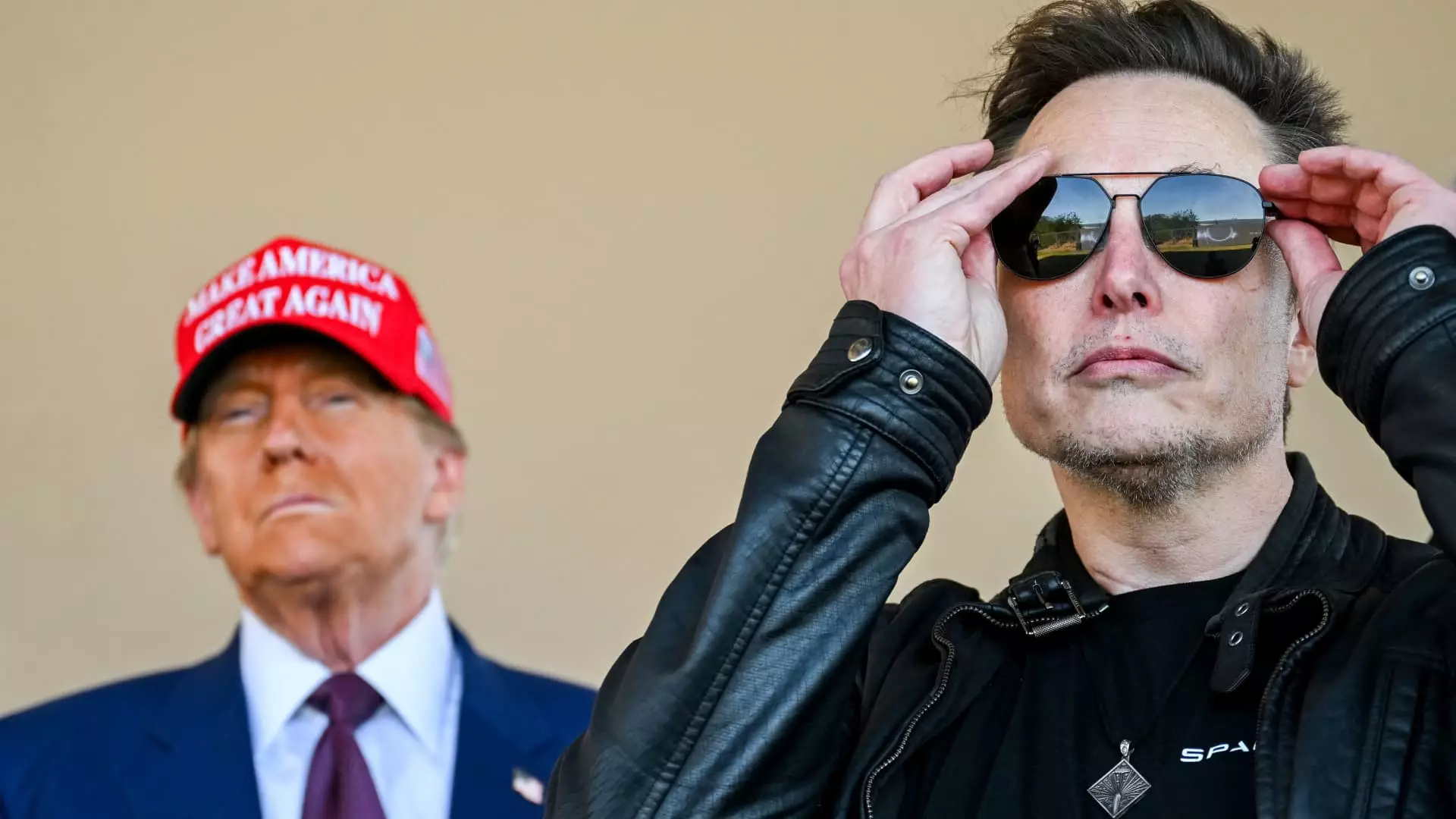As the U.S. government narrowly dodges yet another shutdown, lawmakers are grappling with the implications of private influencers on public policy. Among the most talked-about figures is Elon Musk, who has garnered attention for his apparent sway over discussions in Washington, particularly concerning the impending presidency of Donald Trump. The unfolding drama raises critical questions about the intersection of tech, politics, and democracy.
Recent events encapsulate the tug-of-war between the interests of lawmakers and the significant influence of private figures like Elon Musk. A pivotal moment occurred when House Speaker Mike Johnson’s bipartisan funding bill—a substantial 1,500-page document—was dramatically derailed, thanks in part to Musk’s vocal opposition on social media. Musk’s criticism resonated profoundly amongst his millions of followers on X (formerly Twitter), generating an environment where legislative priorities seem contingent upon the whims of a corporate titan. His proclamations, notably a dramatic warning to legislators about the repercussions of supporting the funding bill, sparked allegations that Musk was overstepping his bounds by playing a quasi-political role.
While Democrats have taken a combative stance against Musk, viewing him as a disruptor to the political process, some Republican voices have emerged in defense of him. For instance, Tennessee Senator Bill Hagerty praised Musk’s contributions to transparency, indicating that without Musk’s vocal critiques, many might remain blissfully ignorant of the bill’s contents. This duality of perspectives showcases an emerging norm where personal brands—bolstered by vast social media followings—can impose significant pressure on established political routines.
The fracture among parties reveals deeper ideological divides. Democrats like Jim McGovern and Elizabeth Warren criticized the perceived capitulation of their Republican counterparts to influence from Musk, illustrating a troubling notion of corporatism in politics. Warren’s biting remark—pointing out that nobody elected the “richest man in the world” to oversee government matters—highlights fears that significant wealth can skew democratic processes.
Conversely, some Republican members, like Congressman Tony Gonzales and Senator Hagerty, embrace Musk’s role as a voice of the American populace, framing his participation as a necessary counterbalance to the often opaque nature of legislative discourse. This perspective champions the idea that influential figures in the tech sphere can serve as conduits for citizen engagement, raising awareness about federal legislation in an era dominated by rapid information exchange.
The chaotic events surrounding the negotiation process are disconcerting. Senator Chris Coons, a voice of caution among Democrats, predicts such disarray is likely to recur in future negotiations, especially as Trump prepares to take office. The trepidation expressed by lawmakers about Musk’s continued interference suggests that the upcoming administration might be marked by increasing volatility. The political landscape is transforming, altering the interactions between private citizens and public officials in ways not previously witnessed.
Lawmakers worry that the established lines of governance could become increasingly muddled as social media personalities gain strength in influencing public opinion and, by extension, legislative direction. With Musk and Trump at the helm, this could blur the roles of elected officials compared to those of influential figures in the private sector, fostering an environment rife with uncertainty.
As we venture into a new political chapter characterized by the dominance of personalities over parties, the question arises: how will this affect the core functions of government? With Musk shining a spotlight on the intricacies—or lack thereof—within legislative mechanisms, the traditional understanding of democracy is under pressure. The intertwined fates of tech influencers and politicians could redefine accountability mechanisms, urging citizens to reassess their roles in a time when the balance of influence may sway as much from boardrooms as from ballot boxes.
The events of last week symbolize a critical turning point in U.S. governance, where populist sentiments, social media influence, and individual wealth could reshape policymaking. As lawmakers brace for future conflicts, the real challenge lies in restoring not just order but also public trust in institutions that are increasingly vulnerable to external pressures. The intersection of politics and corporate influence is not merely a contemporary curiosity; it could very well dictate the future of democratic processes in the years to come.


Leave a Reply